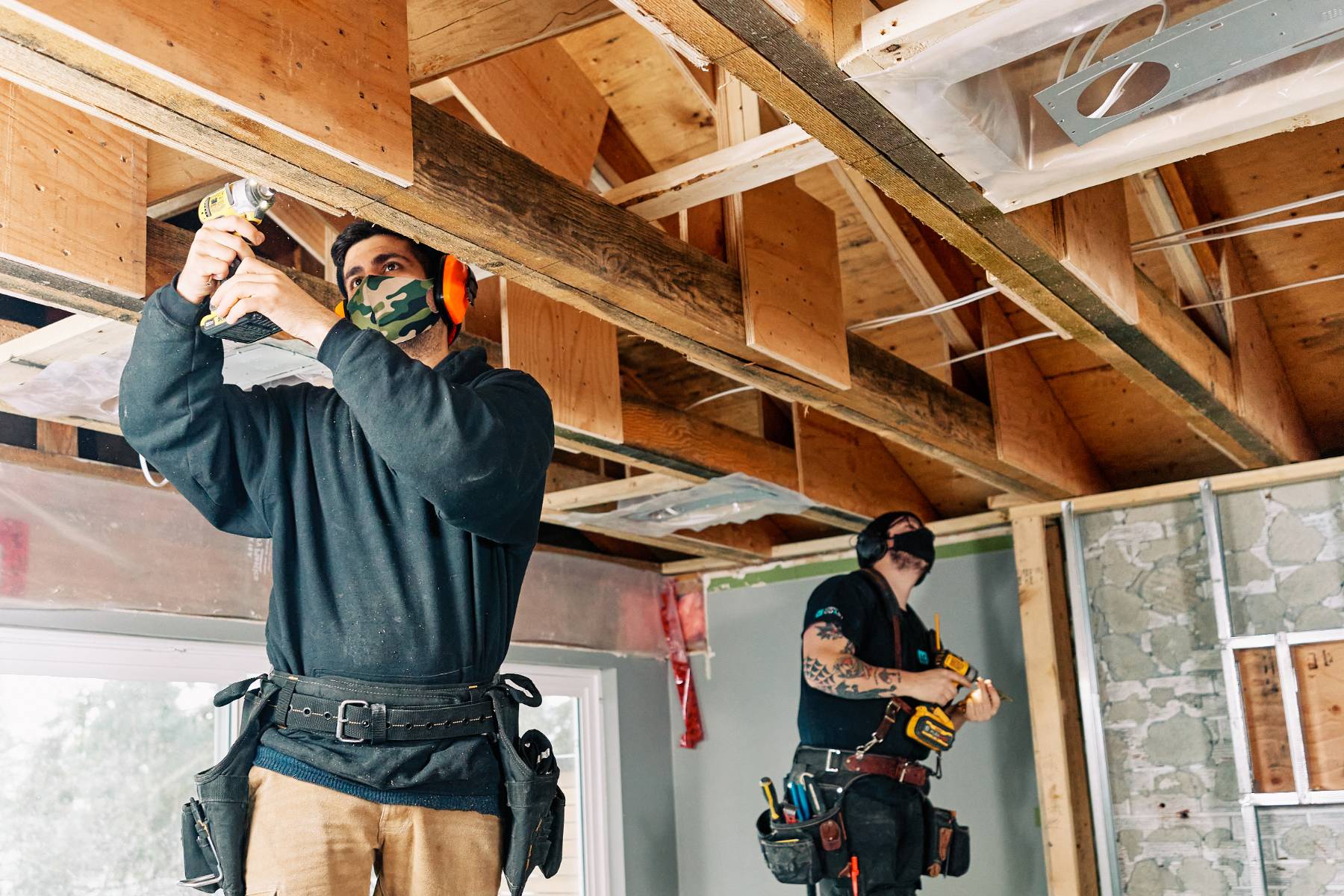Accurate cost estimation plays a pivotal role in the success of construction projects. It enables project stakeholders to make informed decisions, maintain financial control, and ensure timely completion. From project feasibility to resource allocation and stakeholder communication, accurate cost estimation influences various aspects of construction projects. In this article, we will delve into the significance of estimating material, labor, and other costs in construction projects, exploring the diverse benefits it brings.
Ensuring Project Feasibility: The Role of Accurate Cost Estimation
When embarking on a construction project, it is crucial to assess its feasibility. Accurate cost estimation helps determine if the project aligns with available resources and funding. By considering material, labor, and other costs, project managers can evaluate the project’s financial viability and make informed decisions regarding its execution. This estimation also enables stakeholders to identify potential risks and challenges, ensuring that the project is achievable within the given constraints.
Budget Planning and Cost Control: Estimating to Stay Within Financial Limits
Construction projects operate within a set budget, and accurate cost estimation is key to effective budget planning. By estimating material, labor, and other costs, project managers can allocate funds appropriately, ensuring that expenses are accounted for and controlled throughout the project’s lifecycle. A well-planned budget based on accurate cost estimation helps avoid cost overruns, delays, and financial strain, leading to smoother project execution.
Resource Allocation: Optimizing Material and Labor Requirements
Efficient resource allocation is vital in construction projects. Accurate cost estimation enables project managers to optimize material and labor requirements by precisely determining the quantities and types of resources needed. This estimation assists in planning the procurement process, reducing wastage, and maximizing resource utilization. By allocating resources effectively, projects can achieve greater efficiency, reduce costs, and improve overall productivity.
Bid Preparation and Contract Negotiation: Estimating for Competitive Advantage
In the competitive construction industry, winning bids and negotiating contracts require accurate cost estimation. Contractors who can provide precise estimates for material, labor, and other costs have a competitive edge. Accurate estimations instill confidence in clients, demonstrating professionalism and expertise. By showcasing their ability to deliver projects within the estimated costs, contractors stand a better chance of securing lucrative contracts and building long-term partnerships.
Project Scheduling: Estimating to Determine Project Timelines
Time is of the essence in construction projects, and accurate cost estimation directly influences project scheduling. By estimating material, labor, and other costs, project managers can determine realistic timelines for project completion. Understanding the duration required for resource procurement, construction activities, and other project phases helps in creating a reliable schedule. Timely project completion enhances client satisfaction, boosts reputation, and opens doors to new opportunities.
Cost-Benefit Analysis: Assessing Project Viability and Profitability
Accurate cost estimation allows for a comprehensive cost-benefit analysis of construction projects. By considering the estimated costs alongside potential benefits and returns, project stakeholders can evaluate the project’s viability and profitability. This analysis assists in making strategic decisions, such as whether to proceed with the project, seek financing, or explore alternative options. A thorough cost-benefit analysis helps ensure that resources are invested in projects that yield the best possible returns.
Resource Procurement: Estimating to Facilitate Timely Material and Labor Acquisition
Timely procurement of materials and labor is critical for construction projects. Accurate cost estimation plays a crucial role in facilitating this process. By estimating material and labor costs, project managers can plan ahead and initiate procurement activities in a timely manner. This ensures that the required resources are available when needed, avoiding delays and disruptions to the construction timeline. Effective resource procurement contributes to efficient project execution and minimizes costly downtime.
Risk Management: Evaluating Potential Cost Uncertainties and Contingencies
Construction projects are susceptible to various risks and uncertainties that can impact costs. Accurate cost estimation allows for a comprehensive evaluation of potential risks and contingencies. By identifying and quantifying uncertainties, project managers can develop proactive risk management strategies. Estimating costs associated with potential risks helps in creating appropriate contingencies, ensuring that projects remain on track despite unforeseen circumstances. Effective risk management protects against financial loss and safeguards project success.
Stakeholder Communication: Estimating to Establish Transparent Project Expectations
Clear and transparent communication with stakeholders is essential for successful construction projects. Accurate cost estimation provides a solid foundation for such communication. By sharing detailed cost estimates, project managers can establish realistic expectations among stakeholders. Transparent communication fosters trust, aligns project goals, and minimizes misunderstandings. Regular updates on cost estimates help stakeholders make informed decisions and maintain confidence in the project’s progress.
Decision Making: Using Cost Estimates to Guide Construction-related Choices
Accurate cost estimates serve as valuable decision-making tools throughout the construction process. From selecting construction methods to determining material specifications, cost estimates guide various choices. By considering the estimated costs, project managers can evaluate different options, weigh the associated expenses, and make informed decisions that align with project goals and budget constraints. Effective decision-making based on reliable cost estimates ensures that projects proceed smoothly and meet stakeholders’ expectations.
Project Monitoring and Control: Comparing Actual Costs with Estimated Costs
Monitoring and controlling project costs is essential for financial success. Accurate cost estimation provides a benchmark against which actual costs can be compared. By regularly tracking and comparing estimated costs with actual expenses, project managers can identify deviations and take appropriate corrective measures. This enables proactive cost control, preventing potential cost overruns and ensuring that projects remain within budgetary limits.
Variation Order Management: Estimating to Handle Project Scope Changes
Construction projects often experience changes in scope during their lifecycle. Accurate cost estimation is crucial when managing these variations. By estimating the costs associated with scope changes, project managers can evaluate their impact on the overall project budget. This estimation enables effective negotiation, decision-making, and implementation of variation orders, ensuring that scope changes are managed efficiently while minimizing financial implications.
Cash Flow Management: Estimating to Maintain a Steady Flow of Funds
Maintaining a steady cash flow is essential for construction projects. Accurate cost estimation helps in effective cash flow management. By estimating material, labor, and other costs, project managers can align cash inflows and outflows, ensuring that sufficient funds are available when needed. This estimation allows for proactive financial planning, reducing the risk of cash shortages and supporting seamless project progress.
Project Evaluation and Lessons Learned: Utilizing Cost Estimates for Future Improvement
Accurate cost estimation provides valuable data for project evaluation and learning. By comparing actual costs with estimated costs upon project completion, stakeholders can assess the accuracy of their cost estimation processes. Analyzing discrepancies and identifying factors contributing to deviations helps in refining future cost estimation practices. Leveraging cost estimates for continuous improvement enhances project outcomes, streamlines processes, and strengthens organizational capabilities.
Choose Lower Coast Building Group – Your Partner for Accurate Cost Estimation and Construction Success
Are you ready to embark on a construction project with confidence? Lower Coast Building Group is here to ensure your success through accurate cost estimation and impeccable construction services. Our dedicated team is eager to collaborate with you, delivering exceptional results while staying within your financial limits. Don’t leave your construction project’s success to chance. Contact us now and let Lower Coast Building Group be your trusted partner in achieving your construction goals.












